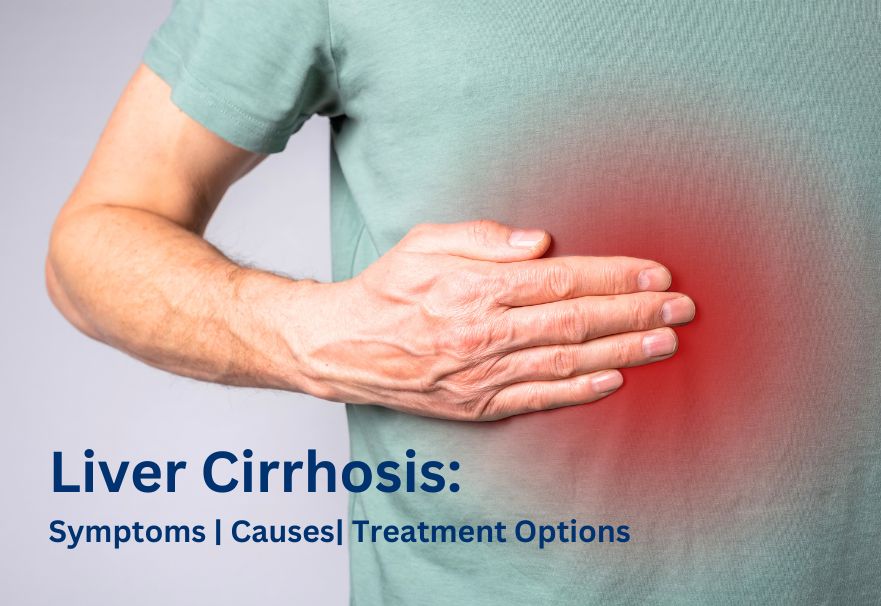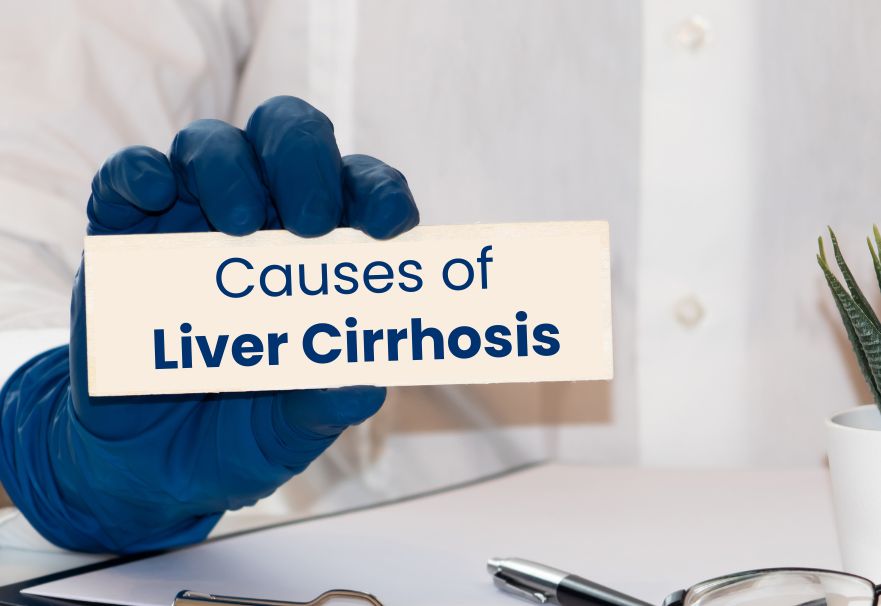Liver Cirrhosis: Symptoms, Causes,
and Treatment Options

Liver cirrhosis is a debilitating condition that affects millions of people worldwide, making it a critical public health concern. This article aims to provide a comprehensive understanding of liver cirrhosis, including its symptoms, causes, and treatment options. By shedding light on this condition, we hope to raise awareness and promote early detection and intervention.
What is Liver Cirrhosis?
Liver cirrhosis is a severe and irreversible ailment that occurs when healthy liver tissue is replaced by scar tissue. The liver is a vital organ responsible for essential functions such as blood filtration, bile production, and nutrient storage. When the liver becomes damaged or scarred, its ability to perform optimally is compromised, leading to serious health issues.
Symptoms of Liver Cirrhosis
In the early stages, liver cirrhosis may not present any noticeable symptoms. However, as the disease progresses, various symptoms may manifest. These symptoms can vary depending on the stage and severity of cirrhosis. Some common signs include:
- Fatigue and weakness: Individuals with liver cirrhosis often experience persistent fatigue and weakness.
- Loss of appetite: Cirrhosis can lead to a decreased appetite and unintended weight loss.
- Nausea and vomiting: Digestive issues such as nausea and vomiting may occur.
- Jaundice: A yellowing of the skin and eyes, known as jaundice, can be a sign of liver dysfunction.
- Abdominal swelling and pain: Accumulation of fluid in the abdomen, known as ascites, can cause swelling and discomfort.
- Leg swelling: Edema or swelling in the legs and feet is a common symptom of liver cirrhosis.
- Confusion and altered sensorium: As liver function declines, individuals may experience cognitive changes, confusion, and altered mental status.
- Gastrointestinal bleeding: Cirrhosis can lead to the development of enlarged blood vessels in the oesophagus, which can rupture and cause gastrointestinal bleeding.
Blood vomiting and black colored stools: Hematemesis (blood vomiting) and melena (black-coloured stools) may occur due to bleeding in the digestive tract.
Consult a healthcare professional for further evaluation and diagnosis if you experience any of these symptoms.

Causes of Liver Cirrhosis
Liver cirrhosis can be caused by various factors. Understanding these causes is essential for effective management and prevention. Some common causes include:
- Alcohol: Chronic and excessive alcohol consumption can lead to liver damage, inflammation, and the accumulation of scar tissue.
- Chronic Hepatitis C: This viral infection causes inflammation and damage to the liver, eventually leading to cirrhosis.
- Non-alcoholic fatty liver disease (NAFLD): A condition characterized by the buildup of excess fat in the liver, which can progress to inflammation and cirrhosis.
- Chronic Hepatitis B: Another viral infection that can cause liver inflammation and scarring if left untreated.
- Autoimmune Hepatitis: An autoimmune disorder where the body’s immune system mistakenly attacks liver cells, resulting in inflammation and cirrhosis.
- Inherited liver diseases: Certain genetic conditions like hemochromatosis and Wilson’s disease can lead to cirrhosis over time.
- Biliary disorders: Obstruction of the bile ducts can cause liver damage and cirrhosis.
It is important to note that not everyone with these risk factors will develop liver cirrhosis, and there may be other factors involved in disease progression. Taking preventive measures such as reducing alcohol consumption, maintaining a healthy weight, and getting vaccinated for hepatitis B can help reduce the risk of developing cirrhosis.
Diagnosing Liver Cirrhosis
Have Any Question?
Are you looking for a Solution for your problem? You can call us or just drop your question here.
In order to manage and treat liver cirrhosis effectively, early detection is crucial. A combination of medical history assessment, physical examination, and diagnostic tests is usually used to diagnose. These may include:
- Blood tests: Routine blood tests can help assess liver function, identify liver damage, and screen for underlying causes such as viral hepatitis.
- Imaging tests: Imaging techniques like MR elastography, MRI of the abdomen, CT scan, or ultrasound can provide visual information about the liver’s condition and the presence of scar tissue.
- Biopsy: In some cases, a liver biopsy may be necessary to determine the severity, extent, and cause of liver damage. A small tissue sample is extracted using a needle and analyzed under a microscope.
If you suspect you may have liver cirrhosis or exhibit any symptoms, it is crucial to consult a healthcare professional for a proper diagnosis and appropriate treatment plan.
Treatment Options for Liver Cirrhosis
While liver cirrhosis is irreversible, various treatment options can help manage symptoms, slow disease progression, and prevent complications. The choice of treatment depends on the underlying cause and severity of cirrhosis. Some common treatment options include:
- Treating the underlying cause: If the cause of cirrhosis is known, such as alcohol abuse, viral hepatitis, or non-alcoholic fatty liver disease, addressing and managing the underlying cause is essential. This may involve lifestyle changes, alcohol abstinence, weight loss, or medications to treat viral hepatitis.
- Medications: Medications can help manage complications associated with cirrhosis. Diuretics may be prescribed to reduce fluid buildup in the body, beta-blockers to prevent bleeding from enlarged blood vessels in the oesophagus, and lactulose to minimize toxin buildup.
- Liver transplant: In severe cases where liver function significantly deteriorates, a liver transplant may be necessary. During this procedure, a damaged liver is replaced with a healthy liver from a donor. Liver transplantation offers a chance for a better quality of life and improved long-term outcomes for those with end-stage cirrhosis.
- Dietary changes: Following a healthy and balanced diet is crucial for individuals with liver cirrhosis. A diet low in salt and fat, rich in proteins and whole grains, can help improve liver function and overall health.
- Lifestyle modifications: Making healthy lifestyle choices, such as limiting alcohol consumption, avoiding drugs that can harm the liver, and engaging in regular physical activity, can help prevent further liver damage and promote overall well-being.
It is important to consult with a healthcare professional to determine the Liver disease treatment plan based on individual circumstances.
Prevention of Liver Cirrhosis
It is crucial to reduce the risk of liver cirrhosis through prevention.Implementing certain lifestyle changes and taking preventive measures can significantly lower the chances of developing this condition.Here are a few preventive measures you can take:
- Limit alcohol consumption: Excessive alcohol intake is a leading cause of liver damage and cirrhosis. Moderation or abstinence from alcohol can help prevent liver-related complications.
- Vaccination against hepatitis A and B: Getting vaccinated against hepatitis viruses can reduce the risk of developing liver cirrhosis.
- Practise safe sex: Engaging in safe sexual practices can help prevent the transmission of hepatitis B and C, reducing the risk of liver damage.
- Avoid sharing needles: Sharing needles can increase the risk of hepatitis C transmission. Proper precautions should be taken to avoid exposure to bloodborne infections.
- Maintain a healthy diet: Consuming a balanced diet that is low in salt and fat, while incorporating fruits, vegetables, and whole grains, can promote liver health and reduce the risk of cirrhosis.
- Engage in physical activities: Regular exercise, such as running or other forms of physical activity, can help maintain a healthy weight and reduce the risk of fatty liver disease.
- Avoid excessive use of NSAIDs: Non-steroidal anti-inflammatory drugs (NSAIDs) like ibuprofen can cause liver damage when used excessively. It is important to follow recommended dosage guidelines and consult with a healthcare professional if necessary.
- By adopting these preventive measures, individuals can significantly reduce their risk of developing liver cirrhosis and promote overall liver health.
The Future of Liver Cirrhosis Management
Advancements in medical research and technology offer hope for the future management of liver cirrhosis. Ongoing studies are investigating new treatments aimed at slowing or even reversing scar tissue development. These innovative approaches may pave the way for more effective interventions and improved outcomes for individuals living with cirrhosis.
Conclusion
Liver cirrhosis is a serious health condition that requires early detection, proper management, and preventive measures. By understanding symptoms, causes, and treatment options, individuals can take control of their health. A healthcare professional is essential for accurate diagnosis, personalized treatment plans, and ongoing support. Together, we can raise awareness and improve outcomes for those affected by liver cirrhosis
Stay Connected with
Dr. Vijaykumar C. Bada

Dr. Vijaykumar C. Bada is the best Gastroenterologist in Hyderabad city of Telangana.
- Flexible Appointments & Urgent Care
Dr. Vijaykumar C. Gastroenterologist
Design & Developed by Pointofviewer
Copyright © 2021. All rights reserved.
